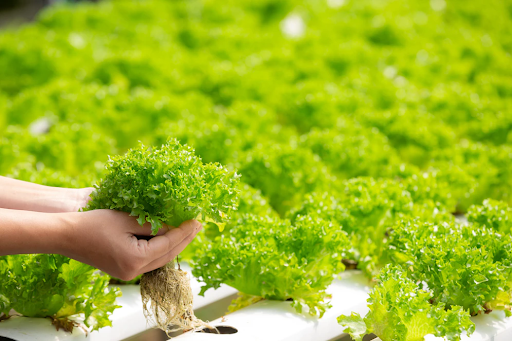The pros and cons of soil-less farming systems/ hydroponics, the new frontier in sustainable agriculture?
The world population will reach 9.7 billion by 2050, as estimated by United Nations, and 70% will live in cities. With this, the need for food is increasing simultaneously. And the production of more food in a sustainable way is becoming challenging.
With rapid urbanisation, the challenge of producing more food is a pressing issue. New technologies are coming into play to meet the demand. One such technology is hydroponics, which is breaking the traditional methods. Therefore, it solves the problem of producing more food and protects the environment from the destructive effects of farming. Thus, it is one of the most promising and emerging technologies.
However, the farmers should become aware of hydroponics technology and receive financial support to adopt it. It is the most sustainable way to cultivate. The Agri finance companies in India offer lucrative loans to help farmers meet their needs. Farmers can avail loans for hydroponic cultivation, drip irrigation, and more. Several Agriculture NBFCs in India are providing financial services to the farmers.
What is hydroponics or soil-less farming?
Hydroponics, in short, is growing plants without soil. A seed is placed in a porous material like terracotta to germinate. After the seed germinates, it gets transferred into the hydroponics system. The hydroponic system has nutrient-rich water and artificial light for 24 hours. It provides the most suitable environment for the plant to grow. This technology is helpful worldwide to produce food. Hydroponics offers many benefits compared to traditional cultivation, and at the same time, there are a few drawbacks.
Let us now dive direct into the pros and cons of hydroponics or soil-less farming.
Pros of Hydroponics
- Ideal Conditions for Growing Plants
In a hydroponic system, the plant has sufficient oxygen, water, and nutrients available for its growth. These are the crucial factors required to grow healthy plants and produce food. Most of the time, the plants are undernourished or overnourished, causing improper growth. Hydroponics gets this issue sorted out; the plants receive the required oxygen, nutrients, and water.
- It Helps Produce High-Quality Food
When the plants are healthy and receive the proper nutrients, they produce high-quality food. The farmers can produce food locally, even when the soil is not suitable for growing plants. The food can be grown locally and hence reduces the cost of transportation.
- Less Water Consumption
Hydroponics systems require a small amount of water to grow plants. The water circulates in the system and directly reaches the roots of the plants. One need not be at the mercy of weather conditions and large amounts of water. In hydroponics, the water consumption goes down to approximately 70%; therefore, this technology is beneficial even in drought-prone areas. It saves a lot of water, which is one of the critical concerns.
- Ease of Food Supply to Urban Areas
As stated above, 70% of the population will live in urban areas in the coming years. The demand for food will grow with the increase in population in urban areas. Hydroponics is the perfect solution to solve the food crisis in urban areas. It is a soil-less production of food and does not require a lot of space. Plants are grown through stacked systems, where the food is grown vertically, saving a lot of space and producing more food.
Cons of Hydroponics
- It Needs Undivided Attention
You need to put in all your attention and could not dare to take any process for granted. You have to make sure that there is sufficient water available. You have to weed timely without delays. It does not require a lot of labour; however, proper, consistent care for a few minutes daily is required. If you fail to do that, you will not reap the benefits of hydroponics.
- Initially It Requires a Huge Cost
To set up the hydroponic system, one must shell a high initial cost. Without the proper system in place, one cannot go further. To start producing food through hydroponics, you have to have the containers, nutrient solutions, etc.
To deal with this issue, many Agri finance companies in India and Agriculture NBFC in India are coming forward with incredible ways to finance farmers. One such Agriculture NBFC in India is Netafim Agricultural Financing Agency Pvt. Ltd (NAFA). Netafim is helping farmers cope with the hurdles of adopting micro-irrigation through financing services. It offers drip irrigation loans and more. It has financed 50k+ farmers, and 8.5 lakh+ farmers have benefited through it.
Conclusion
Now is the time for farmers to make the most of sustainable agricultural practices like hydroponics. The benefits of hydroponics surpass its drawbacks. Nafa, an Agriculture NBFC in India, will provide you with solid financial support to sustainably produce food, meet increased food demands, and raise your income.

